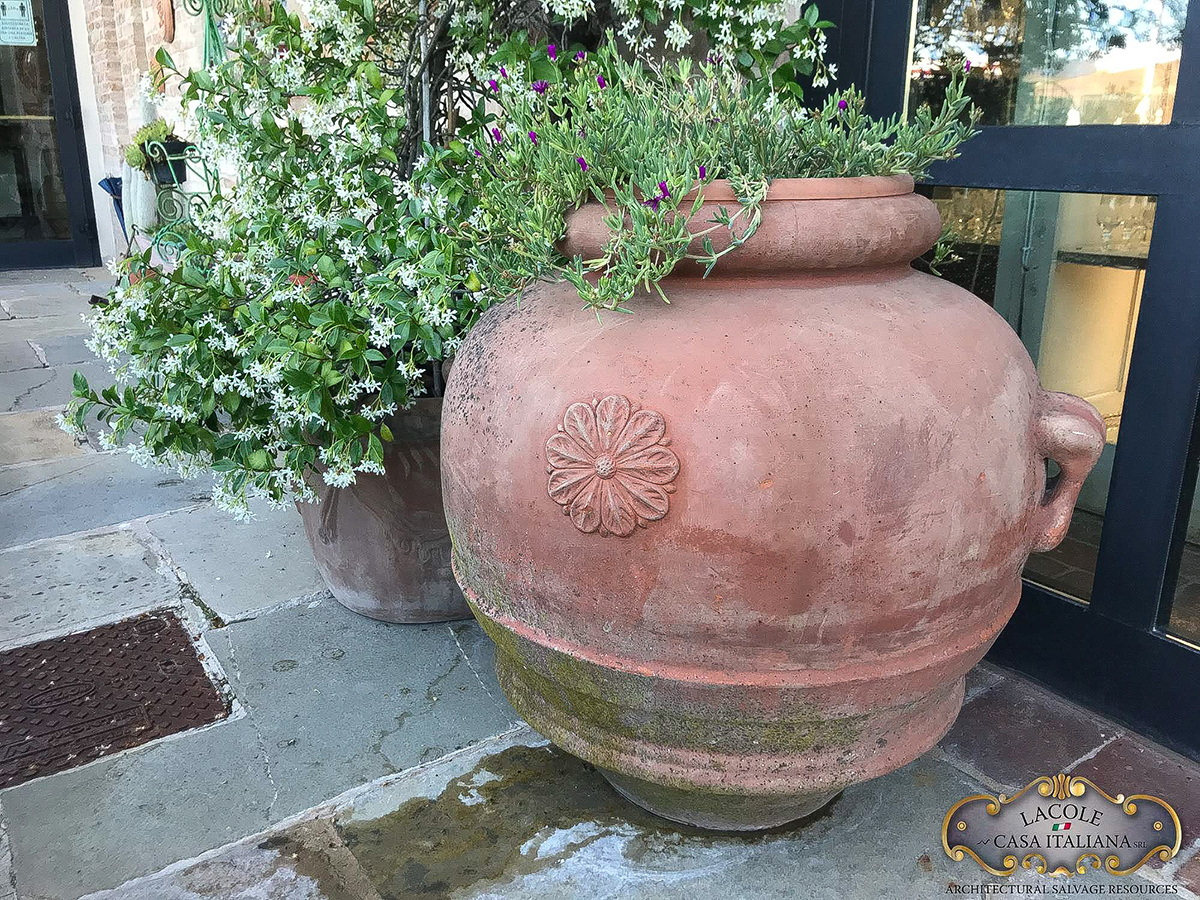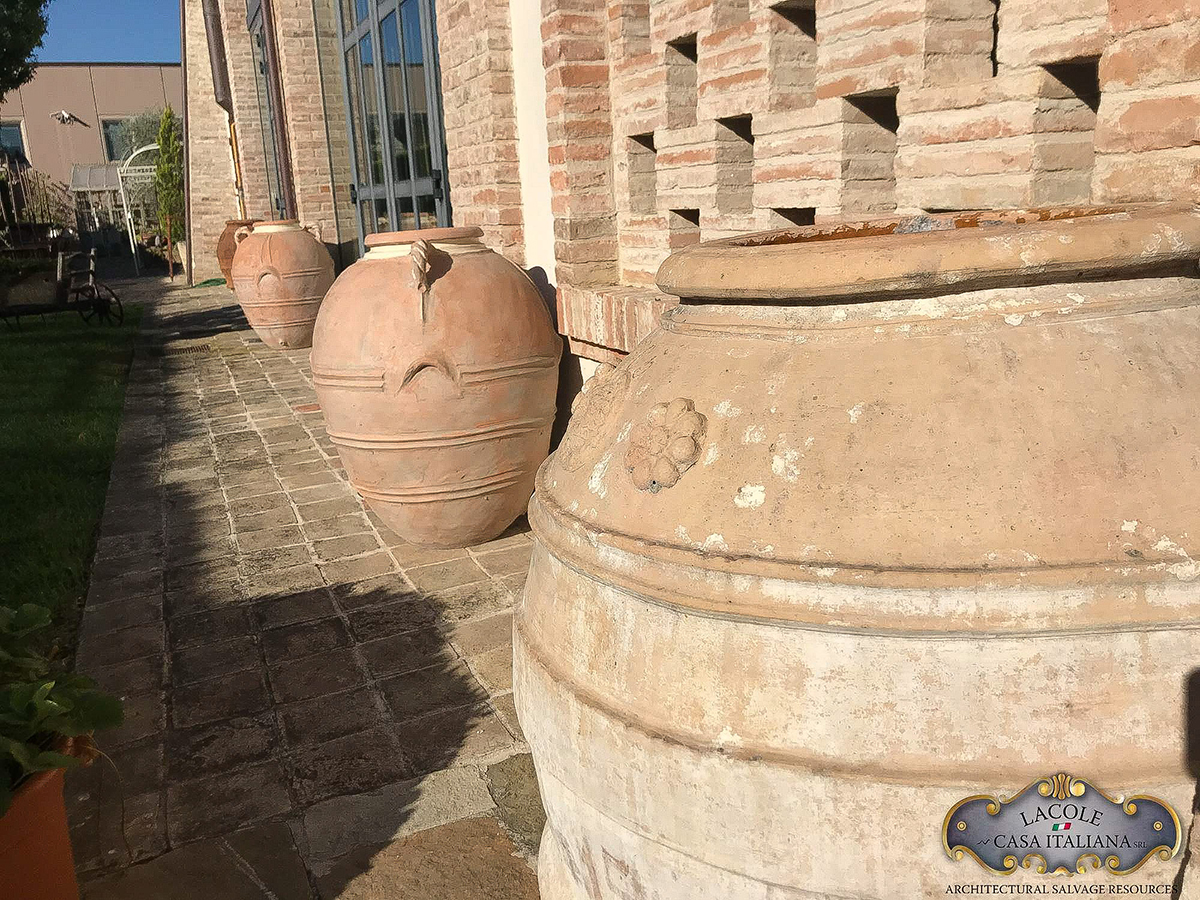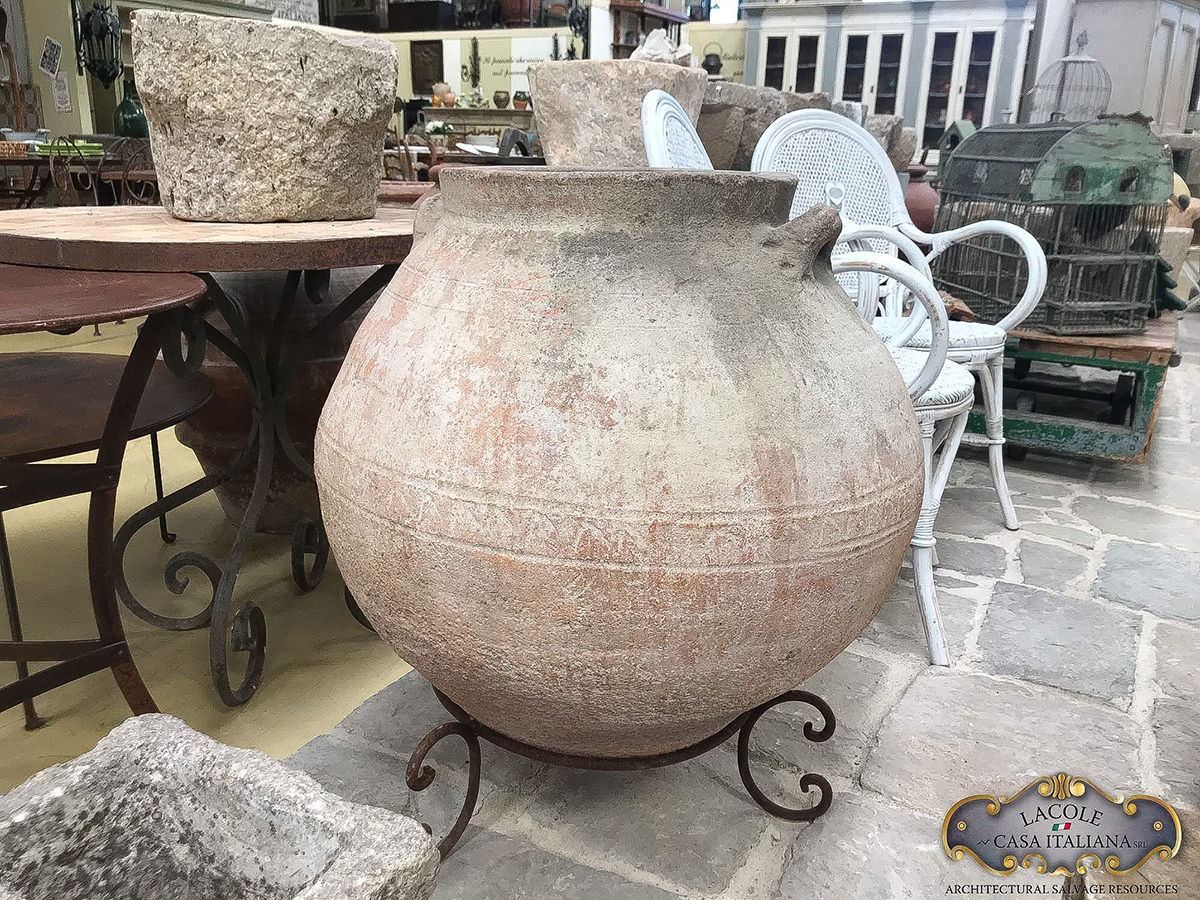Among the most representative objects in the production of terracotta (crockery) the pitcher is certainly the most important.
It could also be said that it is a variant of the oldest amphora, but the jar is more generous in shape and often rich in decorations. In principle, the jar has an imposing and rounded shape, characterized by two or more bands that wrap around the “belly”. At the top we will always find the two handles while the belly is always embellished with festoons, decorations or emblem representative of the artisan producer.
The first apparitions date back to around 1600, in the ancient families of Florentine and Sienese nobles.
Today it is an object mainly dedicated to adorn gardens or the interior of villas and residences , but in the past days was also to contain oil, wine, and even wheat, in these cases it is also called ziro, it has a more tapered shape and it is glazed inside. Below you will find photos of our showroom, where the ancient jar perfectly marries the beauty of our ancient stone and terracotta floors, but also of our garden, among iron furnishings and ancient wells.



The classic Tuscan pitcher is a unique object of its kind, it embodies all the tradition and history of Tuscan terracotta.
Among the most famous furnaces still active we remember those of Impruneta and Montelupo.
In the Lacole Casa Italiana web-site you will find, in addition to a wide selection of ancient materials for renovation, such as antique floors, antique stone and marble fireplaces and antique marble and stone sinks and tubs, antique terracotta jars of various sizes, all original. Click here to access it

Among the most representative objects in the production of terracotta (crockery) the pitcher is certainly the most important. The classic Tuscan pitcher is a unique object of its kind, it embodies all the tradition and history of Tuscan terracotta. Among the most famous kilns still active we remember those of Impruneta and Montelupo.

